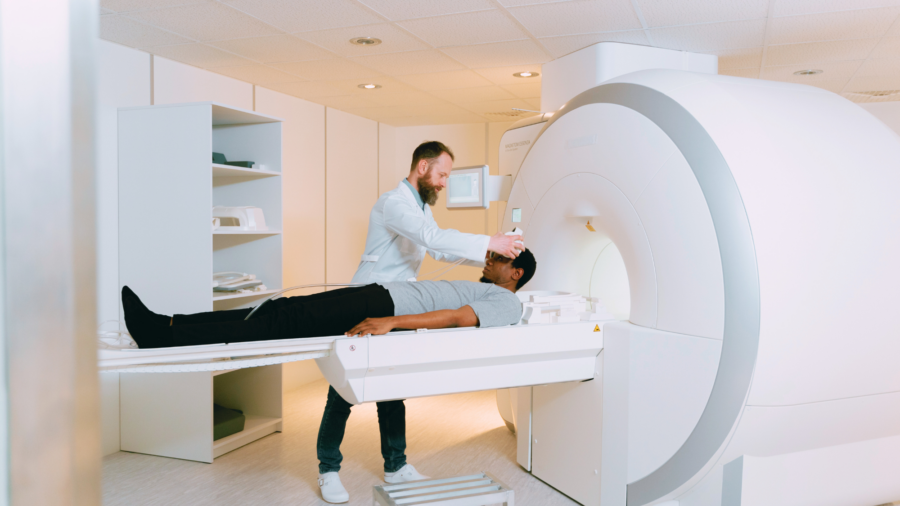The allied health landscape in 2025 is evolving faster than ever, driven by advances in medical technology, demographic shifts, and the growing need for specialized patient care. Whether you’re an experienced professional looking to pivot or a recent graduate planning your first career move, understanding which roles are most in demand can help you make strategic decisions and secure rewarding opportunities.
In this guide, we’ll explore the top 10 in-demand allied specialties for 2025, backed by industry data, and break down why each is growing, so you can plan your next allied health job strategically.
1. Diagnostic Medical Sonographers
The expansion of ultrasound technology beyond obstetrics into cardiology, oncology, and musculoskeletal imaging has fueled unprecedented demand for diagnostic medical sonographers. Hospitals and outpatient centers are increasingly relying on ultrasound for non-invasive diagnostics, which means more positions for trained sonographers across specialties.
Career Outlook:
- The U.S. Bureau of Labor Statistics (BLS) projects above-average growth of 14% through 2032.
- Specialization in areas like vascular or echocardiography can command higher salaries and more opportunities.
Strategic Tip: Consider obtaining certifications from the American Registry for Diagnostic Medical Sonography (ARDMS) in multiple specialties to boost marketability.
2. Physical Therapists (PTs)
An aging population, increased rates of chronic conditions, and a focus on mobility preservation are driving the PT surge. Post-surgical recovery programs and preventive care initiatives are also contributing to the need for more physical therapists in hospitals, skilled nursing facilities, and private practices, making it one of the most future-ready allied health professions.
Career Outlook:
- Projected job growth of 15% over the next decade.
- Rural areas and underserved communities have some of the highest demand and offer incentives like loan forgiveness.
Strategic Tip: Specializing in geriatrics, orthopedics, or sports rehabilitation can set you apart in competitive markets.
3. Occupational Therapists (OTs)
Occupational therapists are key to helping patients regain independence after illness, injury, or disability. With the rise of long COVID and other post-acute care needs, OTs are stepping into expanded roles in both inpatient and community-based allied healthcare settings.
Career Outlook:
- Expected growth rate of 12% through 2032.
- Demand is especially strong in pediatric therapy and neurological rehabilitation.
Strategic Tip: Adding a hand therapy or assistive technology certification can broaden your employment options and increase earning potential.
4. Respiratory Therapists (RTs)
The pandemic spotlighted respiratory care, but even beyond COVID-19, rising rates of asthma, COPD, and other chronic lung diseases keep respiratory therapists in high demand. Advances in pulmonary diagnostics and home ventilator management have expanded their scope of practice.
Career Outlook:
- Job growth projected at 13% in the next decade.
- Telehealth respiratory care is emerging, opening remote-care opportunities.
Strategic Tip: Becoming a Certified Pulmonary Function Technologist (CPFT) or Neonatal/Pediatric Specialist (NPS) can make you more competitive in the future.
5. Radiologic and MRI Technologists
From orthopedic injuries to cancer detection, imaging technology is critical to modern medicine. Radiologic technologists and MRI specialists are sought after as diagnostic imaging volumes rise across the country, especially in allied healthcare delivery models that emphasize outpatient care.
Career Outlook:
- Radiologic technologists: 6% growth projected.
- MRI technologists: 7% growth projected.
- Cross-training in CT, mammography, or interventional radiology offers career flexibility and higher pay.
Strategic Tip: Expand your skill set beyond a single imaging modality to boost your marketability. Cross-train in high-demand specialties like CT, mammography, or interventional radiology to increase your versatility and earning potential.
6. Speech-Language Pathologists (SLPs)
SLPs are crucial in treating communication and swallowing disorders. Aging populations, pediatric developmental needs, and increased awareness of early intervention programs are expanding the profession’s reach.
Career Outlook:
- BLS projects 18% growth, which is much faster than average.
- High demand in school systems, skilled nursing facilities, and home health.
Strategic Tip: Consider earning a bilingual certification to serve a wider patient population and improve your job prospects across allied jobs.
7. Medical and Clinical Laboratory Technologists
Behind every diagnosis is a skilled lab professional. Advances in molecular diagnostics, genetic testing, and personalized medicine mean medical lab technologists are playing an even greater role in allied health.
Career Outlook:
- Job growth of 5%, with demand spikes in high-volume hospital labs and research centers.
- Specializations in microbiology, blood banking, or molecular biology are especially valuable.
Strategic Tip: Familiarity with laboratory automation systems and AI-driven diagnostics will be a plus in 2025 and beyond for lab-based jobs.
8. Cardiovascular Technologists
With cardiovascular disease still the leading cause of death in the U.S., cardio techs trained in echocardiography, vascular studies, and cardiac catheterization are indispensable members of allied healthcare teams.
Career Outlook:
- Steady growth of 5–6%, with many hospitals facing retirement-driven staffing gaps.
- Cross-training in invasive and non-invasive procedures makes candidates highly versatile.
Strategic Tip: Expand your skill set beyond basic cardiac imaging by pursuing advanced credentials through Cardiovascular Credentialing International (CCI) or the American Registry for Diagnostic Medical Sonography (ARDMS).
9. Surgical Technologists
Surgical procedures—from joint replacements to organ transplants—are on the rise, creating a consistent need for surgical technologists in hospitals, outpatient centers, and specialty clinics.
Career Outlook:
- Projected job growth of 6% in the next decade.
- High turnover in certain markets means consistent openings for qualified candidates.
Strategic Tip: Specializing in high-demand surgical areas like orthopedics, neurosurgery, or cardiovascular surgery can improve career prospects.
10. Dietitians and Nutritionists
Nutrition plays a central role in preventive healthcare, chronic disease management, and patient recovery. The expansion of wellness programs and medical nutrition therapy is boosting demand in hospitals, long-term care facilities, and corporate allied health programs.
Career Outlook:
- Growth rate of 7% projected through 2032.
- Specialties like oncology nutrition, sports dietetics, and pediatric nutrition are particularly sought after.
Strategic Tip: Specializing in high-demand areas—like oncology nutrition, sports dietetics, or pediatric care—combined with a tech-enabled delivery model, can position you at the forefront of today’s market.
Key Trends Driving Allied Health Job Growth in 2025
Understanding why these roles are in demand can help you see where the allied healthcare industry is headed:
- Aging Population: More Americans over 65 means higher demand for rehabilitation, diagnostics, and chronic disease management across allied health professions.
- Preventive & Outpatient Care Growth: Shifts away from inpatient care create more opportunities in clinics, rehab centers, and home health.
- Technological Advancements: Imaging, telehealth, and AI are changing how allied healthcare is delivered, opening roles for tech-savvy professionals.
- Workforce Shortages: Retirement of experienced clinicians is creating openings for newer professionals.
Take the Next Step with Host Healthcare
The allied health field in 2025 offers diverse, rewarding career paths for clinicians ready to embrace change, expand their skills, and meet the evolving needs of patients. By focusing on high-demand specialties, obtaining relevant certifications, and aligning your strengths with the right allied jobs, you can position yourself for both professional success and personal fulfillment.
If you’re ready to take that next step, you don’t have to navigate the job market alone. Sign up with Host Healthcare and gain access to exclusive allied health opportunities, personalized job matching, and the support you need to succeed—wherever your skills can make the biggest impact.










